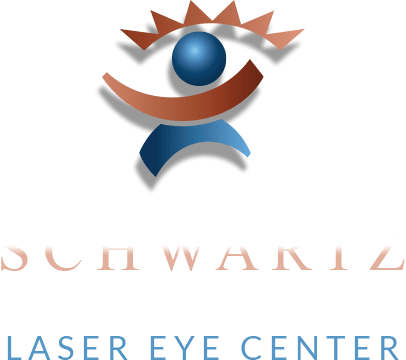Clearer Vision, Trusted Surgeons, Advanced Technology
At Schwartz Laser Eye Center, we know that cloudy, blurry vision from cataracts can make daily life frustrating, from reading and driving to simply recognizing a loved one’s face. Glasses and contacts can only go so far, but cataract surgery offers a permanent solution with life-changing results.
Led by Dr. Jay L. Schwartz, official eye doctor for the Phoenix Suns, Arizona Diamondbacks, and Phoenix Mercury, our practice has become one of the most trusted names in vision correction in the Valley. With offices in Scottsdale, Glendale, and Mesa, we make world-class cataract care accessible and convenient for patients across Arizona.
- Why Choose Schwartz Laser Eye Center?
- What are Cataracts?
- Advanced Lens Options
- What to Expect from Surgery
- Recovery & Follow up Care
- Cataract Surgery FAQs
Why Patients Choose Schwartz Laser Eye Center
- Dr. Schwartz was named one of America’s Best Ophthalmologists 2023 by Newsweek, and Dr. Marc Bloomenstein was awarded Best Optometrist 2023.
- Experience You Can Trust:Over 60,000 LASIK procedures and thousands of cataract surgeries successfully performed.
- Athletes Trust Us: Dr. Schwartz sharpens the vision of Arizona’s top professional athletes, because when the stakes are highest, they choose the best.
- Personalized Care: Our doctors, including Dr. Schwartz, Dr. Birdsong, Dr. Bloomenstein, Dr. Donausky, and Dr. Mohebbi, take time to understand your lifestyle and vision goals before recommending treatment.
- Latest Technology: We use the Victus femtosecond laser for more precise, safer cataract procedures tailored to your eye.
What Are Cataracts?
A cataract is a clouding of the eye’s natural lens, often caused by aging but sometimes linked to diabetes, eye injury, or long-term medication use. Symptoms may include:
- Blurry or cloudy vision
- Glare or halos around lights (especially at night)
- Faded or yellowed colors
- Double vision in one eye
- Frequent changes in glasses prescriptions
If these sound familiar, it may be time for an evaluation.
Advanced Lens Options for Cataract Surgery
Every patient’s lifestyle is unique. That’s why we offer a variety of intraocular lenses (IOLs) to replace the clouded lens and restore vision:
- AcrySof® IQ PanOptix® Trifocal: Clear vision at near, intermediate, and far distances, especially helpful for reading, computer use, and driving.
- AcrySof® ReSTOR®: Great for patients who want to reduce dependence on glasses at multiple ranges.
- TECNIS® Multifocal: Crisp, high-quality vision in all lighting conditions.
- Crystalens® AO: Uses your eye’s natural focusing muscles for a seamless transition from near to far.
- LAL (Light Adjustable Lens): Allows fine-tuning of vision after surgery for precise results.
- PanOptix Pro: Advanced trifocal lens for enhanced clarity at all distances.
- Odyssey: Premium lens option designed to optimize visual quality and reduce dependence on glasses.
During your consultation, Dr. Schwartz or Dr. Birdsong will guide you in choosing the best IOL for your needs, whether you’re an avid reader, golfer, or someone who spends long hours on digital screens.
What to Expect from Cataract Surgery
- Quick & Painless: The outpatient procedure usually takes less than 30 minutes.
- Advanced Imaging: Custom corneal mapping and macular OCT ensure a precise fit for your new lens.
- Laser Precision: The Victus femtosecond laser creates more accurate incisions and lens fragmentation for safer results.
- Fast Recovery: Most patients notice clearer vision within days and return to normal routines quickly.
- Long-Term Clarity: Once a cataract is removed, it cannot grow back.
Recovery & Follow-Up Care
After surgery, you’ll receive protective eye drops and a shield to wear while sleeping. Within days, many patients can drive, read, and enjoy life with improved vision. Follow-up visits with Dr. Schwartz or Dr. Birdsong ensure smooth healing and optimal results.
Complications are rare, and with more than 4 million cataract surgeries performed annually in the U.S., it is one of the safest procedures in medicine.
Cataract Surgery FAQs
When should I consider cataract surgery?
Cataract surgery is usually recommended when cloudy vision begins to interfere with your daily activities, like driving (especially at night), reading, or enjoying hobbies. If glasses no longer help and your quality of life is affected, it’s time to discuss surgery with Dr. Schwartz or Dr. Birdsong.
Is cataract surgery painful?
Most patients are surprised by how quick and comfortable the procedure is. You’ll receive numbing eye drops and may also take a light sedative to help you relax. During surgery, you may feel slight pressure but no pain.
How long does recovery take?
Every patient heals differently, but many notice clearer vision within just a few days. Most people return to light activities, including driving, in about a week. Complete healing takes about a month, and your second eye (if needed) is usually scheduled a few weeks after the first.
Will I still need glasses after cataract surgery?
That depends on the lens you choose. Standard IOLs usually correct distance vision, but you may still need glasses for reading. During your consultation, we’ll help you choose the best option for your lifestyle.
How safe is cataract surgery?
Cataract surgery is one of the safest and most common surgeries in the world. More than 4 million are performed each year in the U.S. alone. At Schwartz Laser Eye Center, our use of advanced laser technology and precise imaging makes the procedure even safer and more accurate.
How do I know which intraocular lens (IOL) is right for me?
There’s no one-size-fits-all answer. During your evaluation, we’ll discuss your vision goals, whether you spend more time on the computer, outdoors, or reading, and then recommend the IOL that best matches your lifestyle.
Can cataracts come back after surgery?
No, once a cataract is removed, it does not return. However, some patients may develop what’s called a “secondary cataract” (posterior capsule opacification) months or years later. This is easily treated in-office with a quick, painless laser procedure called a YAG capsulotomy.
Take the Next Step Toward Clear Vision
Cataracts don’t have to hold you back from enjoying life. With three convenient offices in Scottsdale, Glendale, and Mesa, and a reputation trusted by athletes and patients across the Valley, Schwartz Laser Eye Center is here to help you see clearly again.
Call today to schedule your cataract consultation with Dr. Schwartz or Dr. Birdsong, and discover why thousands of Arizonans trust our team with their vision.




